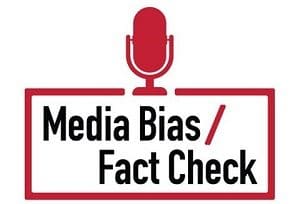
PRO-SCIENCE
These sources consist of legitimate science or are evidence based through the use of credible scientific sourcing. Legitimate science follows the scientific method, is unbiased and does not use emotional words. These sources also respect the consensus of experts in the given scientific field and strive to publish peer-reviewed science. Some sources in this category may have a slight political bias but adhere to scientific principles. See all Pro-Science sources.
- Overall, we rate Skeptical Inquirer a pro-science source based on well-sourced information from peer-reviewed medical and science journals.
Detailed Report
Bias Rating: PRO-SCIENCE
Factual Reporting: VERY HIGH
Country: USA
MBFC’s Country Freedom Rating: MOSTLY FREE
Media Type: Magazine
Traffic/Popularity: Medium Traffic
MBFC Credibility Rating: HIGH CREDIBILITY
History
Founded in 1976, Skeptical Inquirer is a bimonthly American magazine published by the Committee for Skeptical Inquiry (CSI) with the subtitle: The Magazine for Science and Reason. According to their about page they “promote scientific inquiry, critical investigation, and the use of reason in examining controversial and extraordinary claims.”
Read our profile on United States government and media.
Funded by / Ownership
Skeptical Inquirer is owned by the Committee for Skeptical Inquiry (CSI) and the Center for Inquiry. Revenue is derived through subscription fees, donations, and a store that sells back issues of the magazine.
Analysis / Bias
In review, the magazine and website covers topics such as debunking the paranormal as well as other pseudosciences. For example, they debunk the Autism-vaccine link here: The Scientific Frauds Underlying The False MMR Vaccine–Autism Link. This article is very well-sourced from numerous credible medical journals including BMJ. Other topics debunked are Climate Change Denialism and the Dangers of GMOs. In general, this is a pro-science source that primarily debunks pseudoscience and even conspiracy theories.
Failed Fact Checks
- None in the Last 5 years
Overall, we rate Skeptical Inquirer a pro-science source based on well-sourced information from peer-reviewed medical and science journals. (D. Van Zandt 12/2/2017) Updated (08/14/2023)
Source: https://skepticalinquirer.org/
Last Updated on August 14, 2023 by Media Bias Fact Check
Do you appreciate our work? Please consider one of the following ways to sustain us.
or
Left vs. Right Bias: How we rate the bias of media sources

